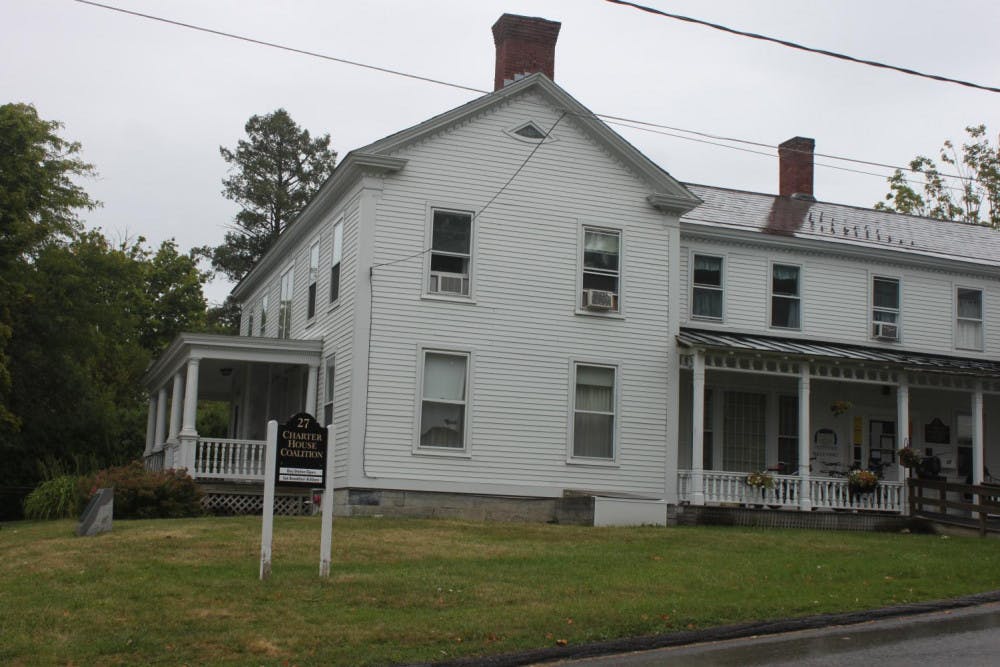Although disasters such as the Covid-19 pandemic are often regarded as “great equalizers,” the homeless population of the U.S. has experienced a disproportionate impact. Local infrastructures, such as shelter programs, have become crucial for these populations to survive the tremors of the pandemic. However, under the extreme stress of increased demand for their resources, shelters across the country have come to a pressing juncture. In many states, the impact of the Covid-19 outbreak has resulted in an upheaval of the entire structure of the shelter system and all of the essential services such programs provide. Numerous shelters have been forced to reduce operations to avoid spreading the disease further, while others have shut down entirely.
In Vermont, state resources have bolstered the shelter system. Middlebury community spaces such as Charter House have been able to find relief in state funding. “The state of Vermont has been fantastic,” said Walter Stugis, chair of Charter House’s board of directors. “They’re great. They’re very supportive. They say, ‘Keep doing the right thing and the money will follow. Don’t worry about if it’s going to cost us too much.’”
Coordination between shelters across the state has been a key component in continuing effective operation amid the pandemic. “Our Executive Director, Doug Sinclair — at least a couple times a week — is on a conference call with shelters and the state human service agency leaders about coordinating how to handle things on a state level,” Stugis said.
Government programs such as State General Assistance are key actors in providing relief for homeless populations and are currently feeling the added pressure. The Campus reached out to the State of Vermont GA program, but was declined an interview.
The need to meet certain health guidelines has compelled most shelters nationwide to enforce stringent protective measures. The Center for Disease Control and Prevention (CDC) encourages those living at home with a person who is infected to use separate bedrooms, bathrooms and personal “household items,” including dishes, towels and bedding. In Nevada, this has meant that some shelters have placed cots in parking lots, as rapidly filling space within the complex has rendered maintaining six feet of distance impossible.
Homeless residents of Addison County have been given the option of staying in hotels in Middlebury and Burlington through the program established by Charter House. While the state is usually reluctant to fund these more expensive measures, the decision to limit those in need to confining spaces could result in dramatic spread.
“It’s a very collegial approach,” Stugis said. “If there’s no more room in hotels in Middlebury… as the population of homeless grows, there’s been other places established that can start taking them and getting transport for them.” Stugis mentioned that Charter House as completely emptied their North Pleasant street facility, as well. “This created space in the Charter House for some future eventuality,” he said. “The state knows now that people could go there now if a need arises.”
In a period where many shelters struggle to secure resources, collaboration has been critical for organizations like Charter House and other local shelters to stay afloat, together. “It’s all new territory… But if there’s a problem, at [our virtual meetings] they get solved,” Stugis said.
For communities across the U.S., it has become impossible for human service programs to serve any form of hot meal. Instead, they are opting for bagged lunches passed off at designated areas. Charter House has established a program to provide a daily breakfast, lunch and dinner for those in their care, without needing to risk travel to crowded areas.
For three meals a day, the Middlebury College dining staff has become a resource in providing those relocated to local hotels with delivered food. Shelter volunteers bring the prepared food to the doors of guests to limit risks and other difficulties of a pickup, Stugis explained.“It’s working great.”
Stugis described other measures taken to limit the extent that their guests would be obligated to enter public spaces. “There’s been a system put in place, so that if someone is showing symptoms in one of the hotels that we’re supervising, then the local medical folks go to the hotel room to do a Covid test,” he said. “All kinds of examples like that, which are mutually supportive to all of the shelters and feeding centers around the state.”
Managing options for temporary sheltering options in this period has become a matter of staying several steps ahead of coming change. Stugis explained that when one option becomes unviable, another must be in the works. “It’s kind of like a game of musical chairs.”
In the face of an onslaught of sudden shifts brought on by the spread of Covid-19, Charter House has maintained the fundamentals on which it was founded. “We have a value statement up on the wall, in various places in the shelter,” says Stugis. “It has words like compassion, dignity, and family. This is how we treat each other. Always.”
Editor’s Note: Please consider donating to the Charter House Coalition, as they continue shelter residents during the Covid-19 outbreak. Donations can be made to the Charter House Coalition on their website.
Charter House continues a modified shelter program with state oversight

SADIE HOUSBERG/THE MIDDLEBURY CAMPUS
The Charter House Coalition continues to provide support to the Addison County homeless community with a modified shelter program, relying on local hotels and motels in Middlebury, including the Middlebury Marriott, to provide short-term housing.
The Charter House Coalition continues to provide support to the Addison County homeless community with a modified shelter program, relying on local hotels and motels in Middlebury, including the Middlebury Marriott, to provide short-term housing.
Comments



